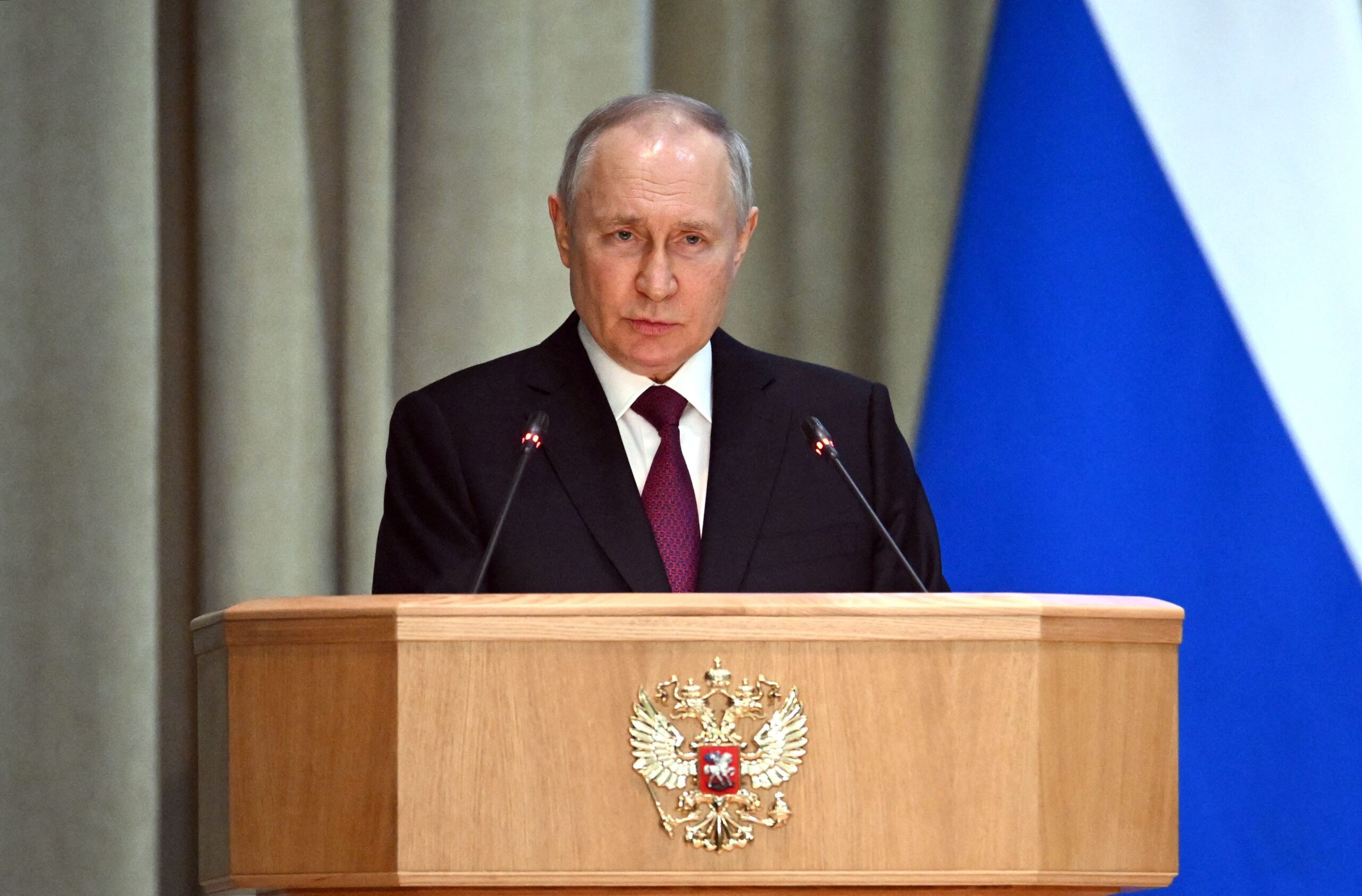The illegal expulsion of children from Ukraine constitutes a war crime. And the International Criminal Court (ICC) has issued an arrest order for Russian President Vladimir Putin.
The International Criminal Court (ICC) issued its first arrest order involving Ukraine on Friday. Accusing Putin of illegally deporting children and transferring persons from the territory of Ukraine to the Russian Federation.
The Russian commissioner for children’s rights, Maria Alekseyevna Lvova-Belova, was also named in an arrest warrant. Issued by the ICC, which lacks the authority to implement its own orders.
The court’s non-party, Russia, criticised the action as being pointless. Since beginning a full-scale invasion of its neighbour in February of last year. Moscow has consistently refuted claims that its forces have engaged in crimes.
The Hague-based tribunal oversees high-profile investigations involving well-known suspects.
It can punish crimes committed on the soil of member states by external actors as well as by citizens of those states. There are 123 member nations. It has a budget of roughly 170 million euros ($180 million) till 2023.
Both Putin and Lvova-Belova are charged with the war crime of forcible removal of individuals. Particularly children, from seized parts of Ukraine and their unlawful transfer to the Russian Federation.
According to the ICC, there are good reasons to assume that Putin is personally responsible for the crimes. Whether he committed them alone, with others, or indirectly.
Additionally, it claimed that despite having effective authority and control over the civilian and military subordinates who committed the crimes. Or aided in their commission, he failed to exercise adequate supervision over them.
If Putin or Lvova-Belova were to enter their country, member states would be required by the arrest order to detain them. Yet, the ICC lacks a police force of its own or any other means of enforcing arrests.
Russia dismissed the ICC’s action as “null and worthless,” despite the fact that it denies perpetrating atrocities since it invaded Ukraine.
Russian Ministry of Foreign Affairs spokeswoman Maria Zakharova stated on her Telegram channel. That “the verdicts of the International Criminal Court have no value for our country, even from a legal point of view.
She stated that Russia has no obligations under the Rome Statute of the International Criminal Court because it is not a party to it.
Andriy Kostin, the general prosecutor of Ukraine, praised the ICC’s announcement.
“The Russian regime is criminal, and its leadership and henchmen will be held accountable,” he declared. “For Ukraine and the entire body of international law, this ruling is historic.
The court has jurisdiction over crimes committed in the territory of a state party or a state that has recognised its jurisdiction.
According to the ICC law, which has 123 state parties, or two-thirds of the whole international community, he said. “Twice, in 2014 and 2015, Ukraine, accepted the ICC.”
Hofmanski stated that 43 states had “officially invoked our jurisdiction” by referring “the situation in Ukraine to the court.”
Although the arrest and arraignment of Russia’s president are almost unthinkable under the current circumstances. The arrest warrants theoretically represent the first step towards a potential trial.
Even if it did occur, past ICC trials have demonstrated how challenging it is to punish the highest ranking officials.
The court has only handed down five convictions for serious offences in more almost 20 years, and none of them involved a high-ranking official.
There are other options besides the ICC’s probes into prominent individuals from other countries. Additionally, war crimes can be tried in Ukrainian courts, and an increasing number of nations are opening their own investigations.
Also, there are plans to establish a new court to try the Russian invasion as an act of aggression. The ICC is unable to bring such a charge.
















